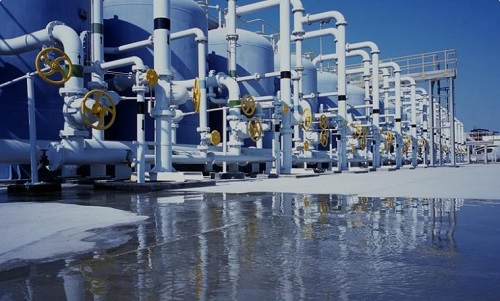What pipes are used in desalination?
Desalination, the process of removing salt and other impurities from seawater to make it suitable for human consumption or industrial use, involves the use of various types of pipes for different purposes within the desalination plant. Here are the common types of pipes used in desalination:
1. High-Density Polyethylene (HDPE) Pipes:
HDPE pipes are widely used in desalination plants for transporting water. They are known for their durability, corrosion resistance, and flexibility. HDPE pipes are suitable for both above-ground and buried applications and are often used in the distribution of treated water.
2. Stainless Steel Pipes:
Stainless steel pipes are utilized in desalination plants due to their excellent corrosion resistance. These pipes are particularly suitable for carrying brine, a concentrated salt solution separated from the desalination process. Stainless steel ensures that the pipes remain durable and unaffected by the corrosive nature of brine.

3. PVC Pipes:
Polyvinyl chloride (PVC) pipes are commonly used in desalination facilities for various applications, including the transport of fresh water and brine. PVC pipes are known for their cost-effectiveness and chemical resistance, making them suitable for certain sections of the desalination process.
4. Fiberglass Reinforced Plastic (FRP) Pipes:
Recommended article:10 Things You Need to Understand About Solar Energy Solutions for Russia
How Does Plain High-Carbon Steel Compare?
Key Considerations to Keep in Mind When Selecting Plain High-Carbon Steel
How Do Solar Panels Enhance Energy Efficiency For Homeowners Work?
Benefits of Titanium Clad Plates for Chimney Lining
Where to Buy Copper Clad Steel Plate in Russia?
Where to Buy Copper Clad Steel Plate in Russia?
FRP pipes are corrosion-resistant and lightweight, making them suitable for desalination plant applications. They are often used in the distribution of treated water and can withstand the corrosive effects of saltwater and chemicals present in the desalination process.
5. Carbon Steel Pipes:
Carbon steel pipes may be used in desalination plants for specific applications, such as the transport of seawater or brine. However, corrosion protection measures, such as coatings or linings, are typically applied to prevent the pipes from degrading due to the corrosive nature of saltwater.
6. Duplex Stainless Steel Pipes:
Duplex stainless steel, known for its high corrosion resistance and strength, is used in desalination plants where extreme corrosion resistance is required. Duplex stainless steel pipes are often employed in critical areas where other materials may be more susceptible to corrosion.
7. Cross-linked Polyethylene (PEX) Pipes:
PEX pipes may be used in desalination plants for specific applications, such as plumbing within the facility. PEX is known for its flexibility, ease of installation, and resistance to corrosion and scaling.
The selection of pipes in desalination plants depends on factors such as the specific application, the type of water being transported (freshwater or brine), and the corrosive nature of the substances involved. Engineers and designers carefully choose materials that can withstand the harsh conditions of the desalination process to ensure the longevity and efficiency of the piping systems.
Essential Guide to 12L14 Hot Rolled Bar
Key Questions to Ask When Choosing 6061 Aluminum Extrusions
How Does Hastelloy Clad Plate Enhance Durability?
Key Considerations to Keep in Mind When Selecting Hastelloy Clad Plate
10 Questions You Should Know About Electric Vehicle Batteries
Top Uses of Hot Rolled Clad Plate in Industry
What is Graphite Wire Used For?











